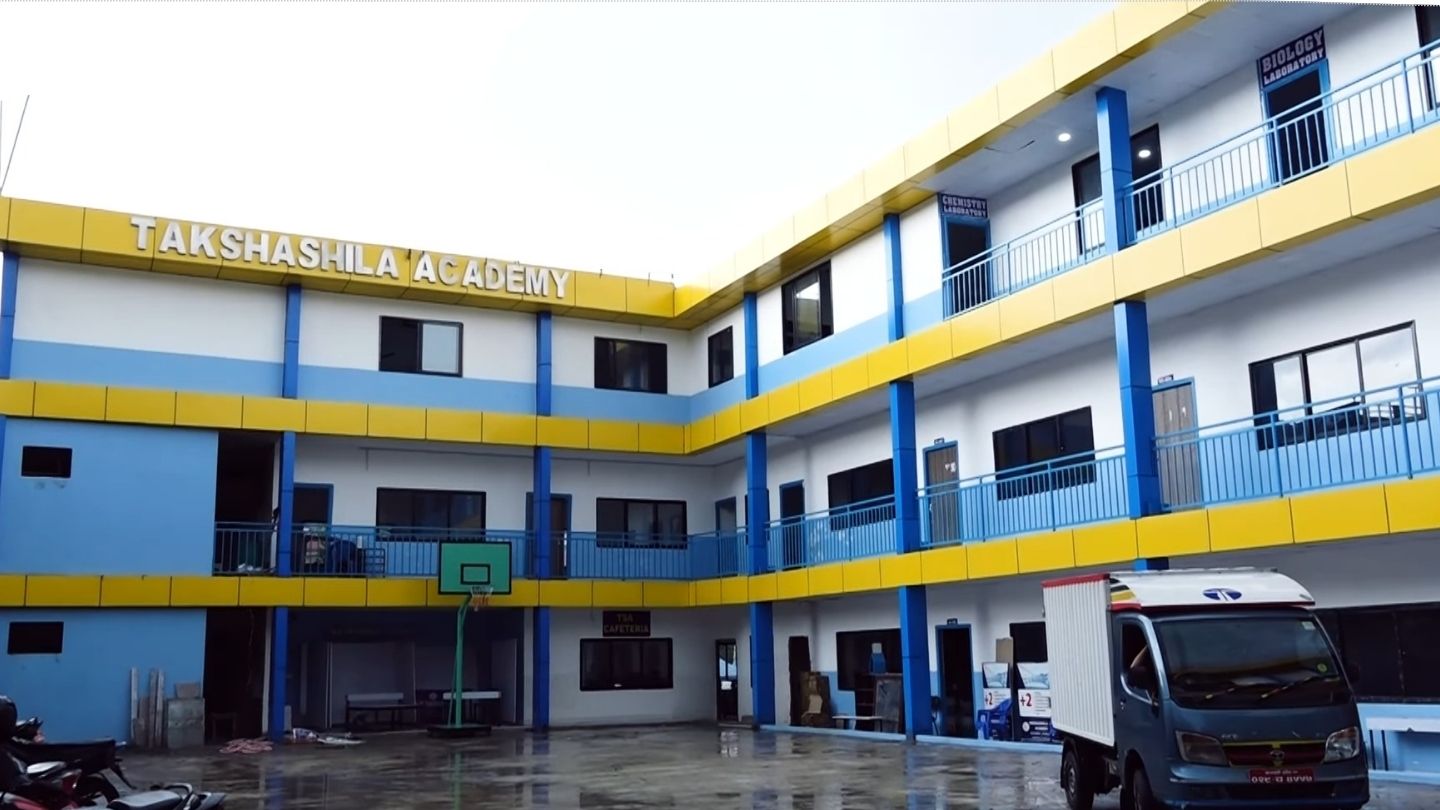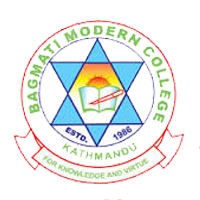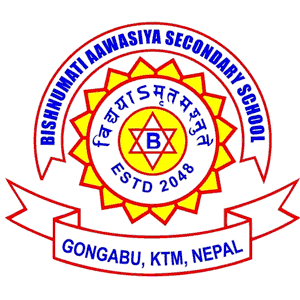Overview
Ten Plus Two (+2) Humanities at Takshashila Academy / College, Tokha, Kathmandu
Ten Plus Two (+2) Humanities at Takshashila Academy / College, Tokha, Kathmandu, is a two-year secondary program under the National Examinations Board (NEB), Nepal.
The stream introduces you to social sciences, language, culture, media, and human behaviour. If you feel drawn to subjects like sociology, history, political issues, literature, psychology, or communication, Humanities gives you a structured route after SEE. NEB handles the national framework for +2 education, while schools and colleges run classes under its guidelines.
Takshashila connects the Humanities stream with its wider philosophy drawn from the historic Takshashila tradition: discipline, self-reliance, and confidence shaped through close contact between teachers, students, and parents.

Highlights
-
NEB-affiliated Ten Plus Two (+2) Humanities program (Grade 11–12) under the national secondary framework
-
Location: Tokha-6, Kharibot, Tokha Road, opposite Nepal CRS Company building, Kathmandu
-
Focus on social sciences, language, culture, and human behaviour for further study in arts, law, social work, media, and public service
-
Social science-oriented club activities for Humanities students, alongside Debate Club and other platforms
-
Shared access to library, counselling, guest lectures, project work, and Transcendental Meditation (TM) sessions for concentration and emotional balance
Curriculum Details
NEB structures +2 Humanities as a two-year course with compulsory and optional subjects. Compulsory subjects across streams include Nepali, English, and Social Studies/Life Skills.
Across Nepal, Humanities students usually select optional subjects from areas such as:
-
Sociology
-
History
-
Political Science
-
Population Studies
-
Psychology
-
Mass Communication
-
Geography
-
Economics
These subject families are mentioned in several NEB-based Humanities descriptions.
Takshashila Academy runs Humanities under this NEB framework. The college chooses specific combinations from NEB-approved options and may adjust them over time. You should check the latest subject cluster and seat availability directly with the administration during admission.
Project work in Grade 12 is a regular feature of Takshashila’s approach. Students prepare reports or small studies linked to society, culture, media, or local issues, and they present findings under faculty guidance.
Objectives
Ten Plus Two (+2) Humanities at Takshashila follows NEB goals while reflecting the college’s own values.
Core objectives include:
-
Building a strong base in social sciences, language, and critical reading
-
Helping students understand social, cultural, historical, and political issues in Nepal and the wider world
-
Developing habits of careful writing, listening, and discussion
-
Encouraging thoughtful engagement with social justice, community life, and public policy
-
Preparing students for bachelor-level study in arts, law, social sciences, media, and related areas
If you enjoy reading, writing, debate, and observation of society, this stream gives shape and direction to that interest.
Scope
+2 Humanities does not close doors; it opens several academic routes. NEB Humanities graduates commonly move into:
-
Bachelor of Arts (BA) with majors such as Sociology, English, Journalism, Political Science, Psychology, Rural Development, Population Studies, or History
-
Law degrees (BA LL.B., LL.B.) subject to university criteria
-
Bachelor programs in Social Work, Development Studies, Gender Studies, International Relations, or Public Administration
-
Education degrees with Humanities-related teaching subjects
For students from Tokha and surrounding areas, Humanities at Takshashila offers a local path toward these fields while keeping options flexible after Grade 12.
Learning Outcomes
By the end of Ten Plus Two (+2) Humanities at Takshashila, students are expected to:
-
Read essays, articles, and basic academic texts in Nepali and English with better understanding
-
Write clear paragraphs, essays, and reports on social and cultural topics
-
Explain core ideas in subjects such as sociology, history, political science, and related fields
-
Present arguments in classroom discussions and club forums while respecting other views
-
Observe social issues and relate them to concepts learned in class
-
Prepare short research-oriented assignments and project reports with proper structure
These outcomes support you when you step into bachelor-level study or roles that require reading, writing, and social awareness.
Skill Development Modules
Skill development in Humanities at Takshashila grows through both formal subjects and campus practices.
Key skill areas include:
-
Reading and interpretation: working with essays, policy notes, media texts, and basic research materials
-
Writing and editing: essays, summaries, reports, applications, and project documents in Nepali and English
-
Critical thinking: comparing viewpoints, identifying arguments, and questioning weak reasoning
-
Communication: public speaking through Debate Club and the social science-focused club for Humanities students
-
Research habits: topic selection, basic data collection, and project-report preparation in Grade 12
-
Personal skills: time management, cooperation in group tasks, and reflective habits supported by TM and counselling
Teaching Methodology
Takshashila Academy highlights a teaching approach based on research, discussion, practical engagement, and critical thinking, not only lecture-based explanation.
In the Humanities stream, teaching commonly includes:
-
Classroom explanation of key concepts with links to Nepali society and global examples
-
Question–answer sessions and guided discussions on social and political issues
-
Text analysis of literature, newspaper articles, and academic passages
-
Debate, presentations, and role-play through clubs and classroom activities
-
Project work in Grade 12 connected to local communities, culture, or media themes
-
Extra tutorial classes when students need additional help in particular subjects
-
TM sessions led by a trained teacher to support focus and emotional balance, especially during exams
The college management points out that Takshashila is run by education professionals, which shapes classroom priorities and assessment practices.
Admission Requirements
Admission to Ten Plus Two (+2) Humanities at Takshashila follows NEB eligibility rules and the college’s own policy. College documents state that:
-
Students must have passed SEE with grades A+, A, B+, or B
-
Every applicant needs to pass the Takshashila entrance examination
-
Oral interviews follow the written test, and parents are expected to attend
-
Female students and students from marginalised communities receive special priority during admission
You should contact the college office or official communication channels during admission season for updated dates, forms, and any Humanities-specific instructions.
Career Opportunities
Ten Plus Two (+2) Humanities does not grant a professional licence by itself, but it gives a clear base for many directions. Across Nepal, Humanities graduates move into:
-
BA degrees in Sociology, English, Journalism, Rural Development, Population Studies, Psychology, History, or Political Science
-
Law programs, subject to entrance and university rules
-
Social work and development studies
-
Media, journalism, and communication courses
-
Education degrees with Humanities teaching subjects
-
Public service and security-related examinations where strong language and social awareness help
Students from Takshashila have progressed into fields such as sociology and public administration, alongside science and management areas, showing that the school’s background supports wide career variety.
Scholarships and Financial Aid
Takshashila Academy operates a scholarship system that covers eligible students in all streams, including Humanities. College documents mention:
-
Full scholarship for the entrance examination topper
-
Full scholarship on admission fee for students who have represented Nepal in recognised national-level sports (with required documents)
-
Full scholarship on admission fee for students from martyrs’ and marginalised families (with valid verification)
-
Additional internal schemes for deserving students as per institutional rules
You should confirm the number of seats and exact conditions for Humanities each year directly with the administration.
Why Choose Ten Plus Two (+2) Humanities at Takshashila Academy / College?
This Humanities stream may fit you if you want to study society, culture, and public life in an environment guided by teachers and rooted in local identity.
Students and parents often value that:
-
The program runs under NEB with clear national recognition
-
The campus is accessible from nearby communities, reducing travel pressure
-
Management is led by academic staff who focus on teaching quality, discipline, and contact with parents
-
Humanities students have a social science-focused club, Debate Club, and project work that bring textbooks closer to real issues
-
Scholarships, counselling, and TM create space for both academic and personal growth
If you are thinking about law, journalism, social sciences, diplomacy, public administration, or creative writing in the future, +2 Humanities at Takshashila gives you an organised start while you remain close to home.
Conclusion
Ten Plus Two (+2) Humanities at Takshashila Academy / College, Tokha, Kathmandu, stands as an NEB-based program that introduces students to social sciences, language, and culture within a disciplined campus setting.
The stream links NEB curriculum, teacher-led management, clubs, counselling, and project work, offering a clear path for SEE graduates who want to understand society more deeply and move toward arts, law, media, or public service studies after Grade 12.
Frequently Asked Questions (FAQ)
1. Which board runs Ten Plus Two (+2) Humanities at Takshashila Academy / College?
The Humanities program is run under the National Examinations Board (NEB), Nepal.
2. How long is the +2 Humanities course?
The course runs for two academic years, covering Grade 11 and Grade 12 as part of the national 10+2 structure.
3. What subjects do Humanities students study?
Students study compulsory English, Nepali, and Social Studies/Life Skills, along with optional Humanities subjects chosen from areas such as Sociology, History, Political Science, Population, Psychology, Mass Communication, Geography, or Economics, based on NEB rules and the college combination.
4. Who should choose +2 Humanities at Takshashila?
The stream suits students who enjoy reading, writing, discussion, and analysis of social, cultural, political, and historical issues and who plan to study arts, law, social sciences, media, or related fields later.
5. What can students do after completing +2 Humanities from Takshashila?
Graduates can apply for BA programs in various subjects, law degrees, social work and development studies, media and journalism courses, education degrees, and public service examinations, subject to each institution’s criteria.
6. Are scholarships available for Humanities students?
Yes. Takshashila offers scholarships for entrance toppers, national-level players, and students from martyrs’ and marginalised families, along with other internal schemes for deserving students.























